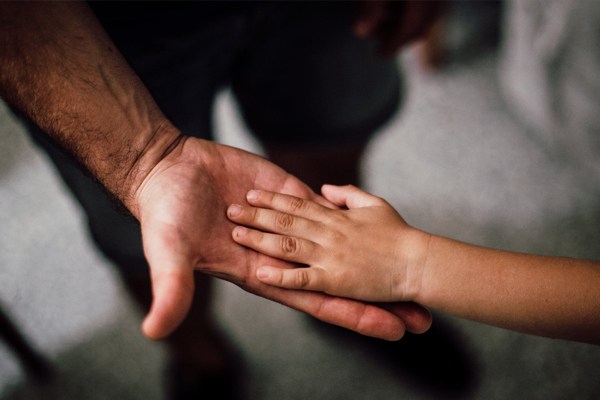
Investor attitude has changed across generations. Today, Merrill Chandler proudly interviews his own daughter, Sharon Chandler, about building her credit profile. Sharon has been teaching Millennial investors like her about the right way to invest in this modern economy. Here, she shares her knowledge on credit and how to build perfect profiles from the ground up. Join Merrill and Sharon as they share some tips on making children and the young generation become financial independent.
—
Watch the episode here:
Listen to the podcast here:
Interview With A Millennial Investor, Sharon Chandler
We’ve got an exciting episode because we have our token Millennial. My daughter, Sharon Chandler, is going to be joining us and we’re going to be discussing credit and Millennials and building perfect profiles from the ground up. Make sure to read the episode because we’re going to have a blast in this episode.
—
I would like you to meet my daughter, Sharon Chandler Fors. I’ve told you stories about her building her credit profile from the ground up on the second she turned eighteen years old. I’m thrilled to have her. She’s my token Millennial. She’ll even say that she barely made the cut. I wanted to be able to have you meet her, have her tell her stories because when we get together at family reunions and family dinners, we talk shop all the time. There are times of which she is called when it’s time to buy a house and you’re looking to refinance. All the little things that you have done in your life, she’s called up and we’ve discussed more and more. Welcome to the show.
Thank you for having me on.
First things first, it’s strange when you’re telling your daughter, “Are You F*able?” That takes my absurdity to a whole new level. You would have to know our family and to know how absurd we actually get.
I am the spawn of the said man. We know all intentions and wonderful meanings.
Let’s start at the beginning. You’re 31. Let’s go back to when you were eighteen and you’re barely starting out your credit profile. Tell our audience what you went through and while all of a sudden in your experience growing up in the household and then why did you start wanting to be interested in credit and what you did from there?
I was like every other 18-year-old, I was a dumbass. Although, I’ve had proper education, I haven’t always listened to proper education like every child ever. I started out with no credit like everybody else. I did not go out and get my first little small credit card or maybe I did. I have a hard time remembering. It was maxed out very quickly. I moved out before graduation. I was seventeen. I was broke like most 18-year-olds are. The car that I had paid cash for had broken down. I went out to get an auto loan and I was approved. I was approved at 18% interest and it was great because I’ve got to drive away with a card. I had no idea what I had gotten myself into.
I’ve been doing this for many years. She was actually working with her mother, my former wife at the time. She did accounting for Lexington and our early vestiges of this entire business. She had been acclimated to it and doing the child-capable work at the time doing deposits.
I remember I would help you with your brochures for NACA. I painted your office.
In Lexington, one of our referral partners was the NACA. We marketed, all those things and we did brochures. You had ended up in your own version of credit isolation because you did the car on your own. Here’s the thing, with all the expertise, all of the training, I’ve never forced anything on to any of my children where I’m like, “You must do it this way. You have to do it this way.” It’s always hopefully, gentle prodding but saying that there are always solutions if you want to know more. You even started reading recently to the podcast and everything becoming your own fan of the tech. How did you start becoming aware? You had your credit card, the $500 credit limit with the America First and then you had your auto loan. When did you start becoming credit-sensitive? Where we started our conversations about what to do next is that, when did you become more sensitized that there had to be a better way or there was something else going on?
A real obvious mark was when I was way underneath my car with 18% interest. I got that when I was probably eighteen years old. By the way to sidetrack a little bit, my parents have never cosigned on anything. As much as I wasn’t grateful for it then, I certainly am now. It’s taught me a lot and it’s taught me how to value what I have. I’m going to slide that in there. It was very painful, I barely made it by, but I knew you had my back in any decisions that I had to make and wouldn’t let me flounder. That’s great.
We’ve moved you into and out of a few apartments that are over the years.
The biggest thing you can do is to teach your kids how to manage their own lives without help #GetFundable Share on XI think I probably found out when my husband and I started needing to make decisions together is really when I started growing up a little bit in my finances. I was 20, 21 or somewhere around there. I was still relatively young when I figured out, “There’s a lot more to this and there’s a way to do it responsibly.” We got married at 23. We got into a little bit of credit card debt over that, but we knew that we could handle it and we did. It was right around then. I hated being in debt. I didn’t like it. I didn’t like the way it felt. I didn’t like knowing that I couldn’t make a purchase on my own and living, scrapping around for however many years. I hadn’t known financial freedom. I wanted to make financial freedom happen.
I remember way back when we started your first auto loan, because remember I coach everybody. You need at least one auto loan. You need one mortgage and then you need the perfect numbers, three credit cards. I remember your First American Credit Union credit card. You came to me saying there were two different cards you wanted to get. We talked about the tiers and what was more valuable to be able to pick up that second card. How many total credit cards do you have?
I have three.
I would like everybody to know this. She has still, eleven years after you started because every credit instrument you chose was intentionally even though it was high interest or otherwise it was still doing that we were still on profile. We’re still billing correctly, but for whatever reason, you chose the right instruments that are all tier-one credit cards. You have three of them still, which is that’s how many I have. I’ve been doing this longer than she has, but I only have three credit cards. We build the limits on each one of those cards. Rather than expanding the number of cards, we expand or raise the limits, all part of ultimately an optimization. How many installment loans do you have? Know that she knows the answer what installment loan is versus a revolving account.
I have two.
One is?
Both our vehicles.
Both vehicles are on both your names, right?
Yes.
Do you also have a mortgage? Is that in his name?

Building Your Credit Profile: When it comes to credit and building a profile, please teach children independence.
No. That is in his name.
He has the mortgage in his name and she has two vehicles. We’re light on your profile in the beginning. What about the tent trailers?
It’s paid off.
My daughter is the perfect blend of Merrill Chandler’s philosophy and Dave Ramsey’s philosophy. We don’t want to pay interest on your personal. The installment loans are strategic debt. It is what we talked about. What would you tell your other Millennials? Many of our clients and audience are entrepreneurs and real estate investors. They’re business owners. Many of them may have children, they’re raising their children or they have adult children like you are. What would you coach those parents to teach their children since I can’t parent them when it comes to credit and building a profile?
When it comes to credit and building a profile, please teach them independence. Don’t crutch them. The biggest blessing my parents ever did for me was to not cosign, was to not hand me money. The biggest thing to do is to teach me how to manage my own life without help. It was painful. It still is, we’re still working on it yet.
I don’t know if this is more of a commentary on my parental skills or my financial coaching skills but you’re absolutely right. The pain goes both ways to watch your beautiful child struggle is extremely painful. One of your siblings, it struggles and struggles and it is extremely painful to not just want to bail them out.
It’s hard. That’s my first piece of advice and the biggest one, no doubt. You’ll be more thankful for anything received in the future. I see all too often with Millennials and their parents, they’re cushy and it’s hard.
For those of us, cushy means entitled.
They’re entitled, “It’s okay. My dad will bail me out. It’s okay. I paid 50/50. My parents pay one.” I gasp at the lack of independence that they’re taught. What if your parents die? What if they had nothing? What if they had a pile of debt that you didn’t know about? You’re left with nobody being able to bail you out. Anyway, it’s a very big passion of mine to teach independence. That’s the number one thing. Everything else can fall into line because if you teach them independence, they will survive. They’ll squander a little bit but they’re going to have to think on their feet. They’re going to have to think in a different way in order to get what they want, where they want to go in life. Without the need for that, there will never be a learning opportunity for them.
My daughter, is she bad-ass or what? This is what I’m talking about. This is why you’re here because you embody that balance of independence but you use other people’s money, you leverage debt in order to get the things that you want. You bought your first house. That was ultimately your first fix and flip. You bought it, lived in it, fixed it and now you’re working on your second house or at least another mortgage, correct?
If you teach kids independence, they will survive. They'll squander a little bit but they're going to have to think on their feet #GetFundable Share on XYeah. We’re working on having the affordability because we don’t purchase when we can’t afford Millennials. We are working on the affordability and also getting me to buy the next house. That doesn’t happen overnight. It takes time. We have a 1,500 square-foot home. We live in 1,000 square feet of it and two of us, two big dogs and two kids. We’re squished but we are affording our living and we are also saving. It’s a big deal for us to save and be able to put money down. I love how we can finagle money. We can learn how we can borrow here and put it there and stuff like that, but doing it responsibly.
How many conversations did we have about financing and going in and doing a home equity line of credit as your first instead of a traditional loan?
Yeah, because then you don’t PMI. You shove it to them for mortgage insurance. It’s horrible. I hate that.
Are there any other things that you would tell either Millennials themselves or the parents of younger children, especially ones growing up? What else do you have for them?
It’s so hard. I’m also a parent. I have a 2-year-old and an 8-month-old. That’s a hard question. I’m old values. Other than teaching independence, consciousness and being able to teach them to learn more about themselves, be more independent of their own personality and rather than being codependent on other resources around them. I still fight with that sometimes. We are all in practice here but this is a big one. Giving them any advice that you have is great without expectation of the result of that.
I want to weigh in on that one because the thing is the hurt goes both ways we were talking about. She’s struggling to do it on her own. I have resources and at least knowledge that hopefully I had inculcated at the time she had been born and bred with. At the same time, they have to learn. Everyone has to learn a certain degree of this on their own. The reason why it’s so meaningful is now, your family is burgeoning. You’ve got a little boy and a little girl. Everything is moving but you don’t know how I teach that the time to seek funding and to become fundable is not when you need the money but 6, 12, 24 months before that. At the same thing, you can’t teach a child, you can’t teach even a young adult how to all of a sudden become independent or make wise financial decisions overnight. You have to practice these behaviors. Remember we talked FICO all the time, measuring borrower behaviors. Those borrow behaviors start from childhood.
We grab humble and budgeting was a huge part of that. People may or may not agree with me on this, but having the conversations in front of your children that, “We can’t afford this.” That’s not talking to me, that’s talking to a mom at the time, “We can’t afford this or this isn’t wise.” Having the kids come in on the planning, having them set their own reward system sometimes that way they want the reward. They see that, “I want this. What do I get to do in order to achieve it?” That is such a valuable commodity that we parents think that we know it all and we know what our kids want. We don’t. We can have best guesses until they can talk. At that point, it’s great to ask them questions. My parents are asking me questions.
How to prioritize? Of these three things that you say you want, what’s most important to you? What do we want to choose first? Remember we talk about always building a profile that’s the goose that lays the golden eggs. We don’t carry balances on our personal and we save our balances for the business side. Inherent in that philosophy is not to keep low utilization and to stay fundable. We pay so much less interest and we govern and we’re wise about the use of our credit cards. I tell people, “Put on 10% to 20% traffic on your card and pay it off.” We don’t report high utilization at the reporting date and we don’t report balances or we don’t carry balances past the due date. We want to minimize interest but it takes discipline because the entire attitude of the most recent generations, at least the last several years, it was true in my generation is, “I want it now, daddy.” It’s the ability to save and then invest in the future. We only go into debt where we can leverage that debt for prosperity, where we can make something of it. You guys are saving right now for your second home, but you’re saving cold, hard cash so you don’t have to borrow that first 20% in order to create the results you’re looking for.
Be able to live happily and to be able to have that freedom. That’s all about getting fundability™ is to be able to implement that into their own portfolios, into their own lives. I talk about this at work a lot. I work with a lot of Millennials and people younger than myself. We’re in the service industry. Bless their heart and soul, they were not raised by somebody that had so much knowledge of credit and debt and debt to income ratios because they’re so different. I’ve taken it upon myself because as Chandlers, we like to teach. I have taught as much as I can to people, but it breaks my heart how many don’t even know what a 401(k) is. They don’t know how to keep their own credit profile. They don’t even know what a credit profile is. They simply don’t know what it is. They don’t know how to set themselves up for success. They need to be taught. I’ve already learned plenty as a young mom.
Here’s the thing that I want to that point is that there’s what’s called generational knowledge. Many times, there’s this blend of what can we pass along to the next generation that they don’t have to learn the pain and suffering the previous generation? How much has to literally be learned on their own to make valuable choices? The whole Rich Dad Poor Dad phenomenon was about generational knowledge. How do you learn? What did the rich dad teach his children? What did the poor dad teach his children? How does that get passed along? I backed into this. You all know my story. I came up with the whole optimization thing while I was in prison. I abandoned this poor child and her one sister and one brother while they were young. The tragedy that that was for me, but the self-reliance they came to understand, while they were with their mom alone. That was insane.

Building Your Credit Profile: Children should be more independent of their own personality rather than being co-dependent on other resources around them.
Things happen for a reason, but I do not wish on anybody to willfully leave their family for any reason that isn’t a matter of life and death. Mine was foolishness and not life or death. The thing is that the silver lining looks at how much you have become because from a youngster, you had to stand on your own two feet and you had to show up for the rest of the family. You’re my oldest. How much you had to show up for the family? How much you had to show up for yourself? How often you had to start taking yourself more seriously than others? That’s no excuse on my part, but look at the gift and the benefit of who you’ve become and even your siblings.
It certainly is a silver lining and we all are able to take in the lessons. Hopefully, we can learn from them. Some do and some don’t and it makes things hard. We want nothing but the best for our children. A lot of parents will unknowingly, foolishly give them everything because they don’t want them to experience the pain and suffering that I may have had or many others. There’s much value in that. The rose grows in shit, for God’s sake. Learning from all of that has been such a blessing and then being able to communicate that in other ways. Parents, when you are going through the trudges and your kids are young or even older or anything like that, it’s not a bad thing to tell them your experiences. The thing is if you tell them your experiences, they may or may not learn from that. They are going to learn their own, but there’s no harm in sharing them all of your knowledge. Why not tell them? Why not tell them what you’ve gone through? Why not tell them how you’ve been able to build your portfolio? If you’re a millionaire, tell them how you did it. Go from all perspectives because what if the one thing that you think is not important impacts them for the rest of their lives?
It is the game changer for them. I do have to tell you, Sharon sent me a video and we posted it on Funding Hackers and everywhere. She was in the break room at her job, the podcast was on and she was videoing and there were eight people in the room who are all listening to the podcast on their break. I thought you are an evangelist. We are walking in the exact same shoes because I’m all about evangelizing the gospel of fundability™, the gospel of power, of keeping your power within yourself. What would be the single greatest message that you can share it with my audience?
Merrill is onto something. There are results in what Funding Hackers and CreditSense are teaching. It’s big time knowledge. Keep your eye on the ball, keep your eye on where you want to go. Know that you can get there. It’s going to be really hard. It’s going to be shitty sometimes but it can happen.
Thank you. I’m thrilled that you’ve been here and be able to share some of the principles that we got to introduce to you and you implemented so amazingly. Would you care to share your credit score? You have shared with it over time.
I will speak in earnest. It was 816 and it dropped to 786. It’s 40 points when I paid off my trailer in under two years.
It’s weird how that happens. You are out of debt.
I would do experimenting for you. I took one for the team. I was shocked.
Notice that when an installment loan portfolio drops in its value, all of a sudden the value of your profile also drops. Thank you for joining me. Notice the hit where it’s a dynamic and moving thing, but a 780 at 31 years old and having built flawlessly from the beginning, you have a foundation that’s irreplaceable. Thank you, Sharon, for being with me. Thank you for joining us. It’s been an amazing pleasure to have my daughter come and share some of her wisdom and insight about what it means to be a Millennial and the things that you learned because you toughed it out.
Thanks for having me on.
Important Links:
- Lexington
- Rich Dad Poor Dad
- Funding Hackers – Facebook Group
- CreditSense
Love the show? Subscribe, rate, review, and share!





blog3002
April 11, 2020 6:28 pmGreat goods from you, man. I’ve understand your stuff previous to and you are
just too fantastic. I really like what you have acquired here, certainly like what you’re stating and the way in which you say it.
You make it entertaining and you still care for to keep it smart.
I cant wait to read far more from you. This is really a
wonderful web site.